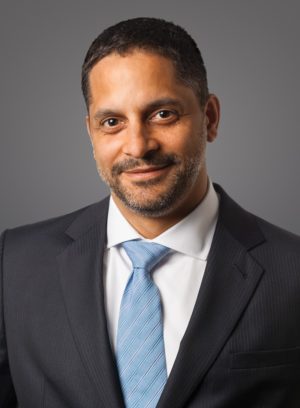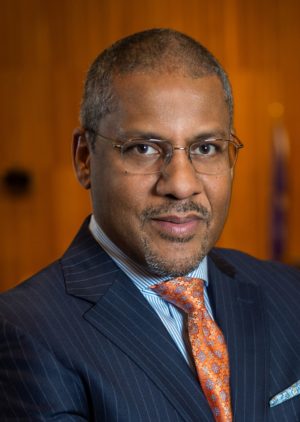Law Schools Scramble To Educate Students in Fallout From Virus That Sent Students Home
3.24.2020
Law schools are moving their classes online to protect the health and safety of students and faculty. But this virus is raising new concerns about how to ensure equity in classes held remotely during a time that students are also dealing with the fallout of a global health emergency.

“Nobody’s experienced anything like this,” said Dean Eduardo M. Peñalver of Cornell Law School. “We’re kind of inventing the playbook as we go, and then the rules keep changing about every three days.”
Students are also scrambling to make sure they have computers and reliable internet connections at home that can support distance learning.
“This is a time when we need our schools to be pioneers and really trail blaze in these moments when it comes to stepping up and providing students with the resources that they need, not just during times of crisis but all the time,” said Dannelly Rodriguez, a second-year law student at CUNY.
Effective Sunday evening, Gov. Andrew M. Cuomo ordered New Yorkers to stay at home as much as possible to stem the spread of the coronavirus. Deans of law schools across the country are assessing how to fairly evaluate students during this time of rapid transformation.
Many law schools are moving to a mandatory pass-fail system of grading for the current term. Cornell Law School was one of the first in the country to make this change in response to coronavirus. Dean Peñalver said, “We just wanted to reduce the temperature a little bit, understanding that there are costs associated with moving to pass-fail, let [students] take the issue of grades off the table and just focus on taking care of themselves and learning.”
A mandatory pass-fail grading eases some of the competitive pressure of law school classes, but it also means less opportunity for students to stand out with good grades or correct for poor performance in past years.

Faculty at Syracuse University College of Law decided on Monday to institute a pass-fail option. Students may choose either a letter grade or pass-fail in each class after they have seen their exam grade. “Our goal is to find a solution that will solve 90% of problems, and we deal with the other 10% on a case by case basis,” said Dean Craig M. Boise of Syracuse.
The coronavirus crisis also raises questions about the administration of the Bar Exam, currently scheduled in New York for the end of July. The New York State Bar Association Task Force on the New York Bar Examination is meeting on an emergency basis to recommend alternatives to an in-person test in July.
“COVID-19 has profoundly impacted all aspects of the practice of law. Depending on the duration of the crisis, it may not be possible to hold the bar exam this July,” said Henry M. Greenberg, president of the New York State Bar Association. “That judgment needs to be made soon, as graduating law school students are understandably anxious to take their place in this profession and need to know when and how best to prepare for the bar exam. So, we look to the task force to expeditiously give us its best thinking and judgment on this important issue.”
“The task force’s mission requires a great deal of thought, but we must act quickly and decisively,” said Alan Scheinkman, presiding justice of the Second Department and chair of the task force. “It’s clear now that rising law school students may not be able to take this exam together in New York in July. We must find ways for them to prove their ability to join the profession even if it’s on a provisional basis.”
Deans of law schools across the country are considering the possibility of shifting their recruitment period to January. “There seems to be an emergent consensus that this is a good idea,” said Dean Peñalver. “If that happens, then I think the cost of this is mitigated substantially, because they’ll have that third semester to show that improvement before the recruiting starts.”
Students at law schools are also confronting unprecedented disruptions to the profession they’re seeking to enter. “I have long believed that there is going to be a lot of shift toward remote work no matter what, and this has thrown us off a cliff, and we have to do it whether we like it or not,” said Dean Alicia Ouellette of Albany Law School.
Some law schools are also anticipating the rising need for legal services in the wake of the coronavirus. “Maybe for the future, but certainly in the near term, lawyers are going to have to work with clients in communities remotely, or they’re going to get no legal services at all,” said Dean Mary Lu Bilek of CUNY School of Law.
As the only publicly funded law school in New York City, CUNY has a stated mission to provide legal education to students from communities underrepresented in the profession. More than two thirds of their graduates take jobs in public interest law or government.
Dean Bilek said, “I am open to the possibility that this moment will cause us to discover new ways of delivering legal education and thinking about admission to the bar that will advance justice.”



